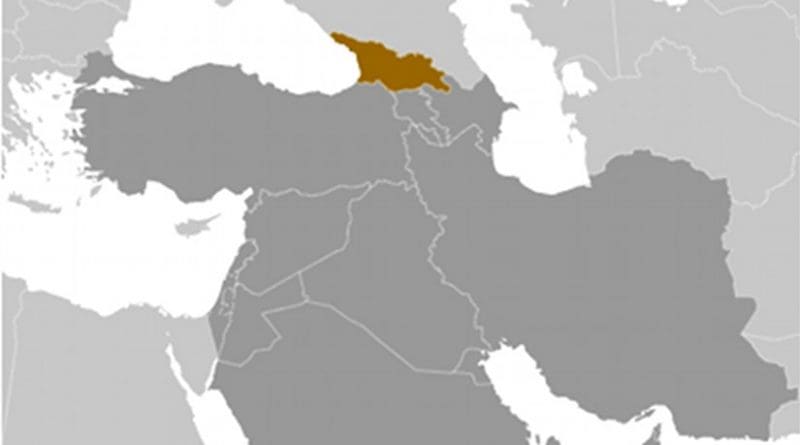Georgia’s Election: Whither The Opposition?
By Eurasianet
By Giorgi Lomsadze and Tamada Tales
Georgia’s opposition parties are scrambling to piece together their future after the October 8 parliamentary election left the governing Georgian Dream ruling the roost.
Some are turning to emotional eating. Outgoing Georgian Parliamentary Speaker Davit Usupashvili, whose Republican Party failed to make it back into parliament, has said that, in all likelihood, he would dunk his head into a bowl of food.
“When Irakli Gharibashvili stepped down [as prime minister in December 2015], I advised him to … shove his head into satsivi and ponder the future. Now, I have pretty much the same advice for myself,” commented the already relatively rotund Usupashvili. (Satsivi is a spicy walnut purée traditionally served with turkey on New Year’s.)
He might be joined by other opposition politicians, both old-timers and newbies.
United National Movement (UNM) candidate Sevdia Ugrekhelidze, for one, could bring to the table her self-described outstanding khachapuri-baking skills. In a televised pre-election debate, she invited her Georgian Dream rival in a Tbilisi district to have a piece of her rendition of Georgia’s trademark cheese pastry to help digest his loss. But the reverse happened.
Overall, with a total of 67 seats in the 150-seat parliament, the Georgian Dream left the UNM (including Ugrekhelidze) in the dust (with 27 seats) and will get a supermajority if it prevails in pending runoffs for another 51 seats.
The only other opposition presence, the nationalist Patriots’ Alliance of Georgia, has a mere six seats and is unlikely to join forces with the UNM on any issue.
Claiming a rigged vote, the UNM had considered a boycott of parliament, but, last night, decided to soldier on and fight the Georgian Dream in the first-past-the-post runoffs. In the first round, it won only one (Akhaltsikhe) of the 73 individual-candidate constituencies.
To improve its performance, the UNM has asked for support in the runoffs from all Georgian Dream opponents to avoid leaving the governing party with a two-thirds majority and, as it claims, the Georgian Dream’s billionaire founder, Bidzina Ivanishvili, able to do anything he wants; even “rename Tbilisi,” warned senior UNM member Nika Melia.
The UNM’s pro-boycott founder, ex-President Mikheil Saakashvili, wrote on his Facebook page on October 11 that, while the party had been divided over a boycott of parliament, “all of us have a duty to make sure this argument does not turn into a blame game, finger-pointing and divisions, which is something Ivanishvili wants so much.”
Arguably, the lack of unity between Georgia’s smaller pro-Western opposition forces led to their shutout from parliament. While the election went to the Georgian Dream, its popular support slipped from 54.97 percent in 2012 to less than half (48.67 percent, to be exact) of voters.
Lesson learned, Usupashvili’s Republican Party now seeks to cooperate with what’s left of its ideological kin, the Free Democrats Party, whose ardently pro-Western leader, ex-Defense Minister Irakli Alasania, waved good-bye to voters after a disappointing performance in the election.
Into the void has come the Patriots’ Alliance for Georgia, accused of shilling for Moscow.
One of the coalition’s leaders, Irma Inashvili, notable for her hawkish rhetoric and energetic dancing, cried fraud, but said that the Alliance will take its humble six seats.
Inashvili, though, has her own way of gauging voter support. In the 2015 local elections, she challenged the results in one unidentified village, where she claimed at least 500 people had clapped when she hit the dance-floor at a wedding. “How come I got only 20 votes in that village?” she asked.
As yet, no sign that applause will prompt any recount for the opposition this time round, either.

